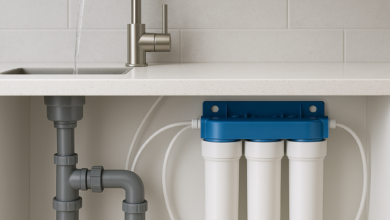
Goals of Becoming a Traveling Nurse
If you’re interested in becoming a traveling nurse, you must be prepared to follow specific educational and licensure requirements. These include earning an associate’s or bachelor’s degree, passing the NCLEX, and gaining experience.
Travel nurses must be flexible, adaptable, and have a strong work ethic. Additionally, they need to communicate well and quickly pick up new medical environments.
Education Requirements
If you’re interested in becoming a traveling nurse, there are a few steps that you need to take before you can start working. The first step is to complete a nursing program and obtain licensure and certification.
In addition, you should make sure to have experience providing patient care in a hospital setting. Finally, after receiving your degree, you must pass the National Council Licensure Examination for Registered Nurses (NCLEX-RN); doing so will help you stand out from the competition and guarantee you can handle any job. This adaptive computer test takes up to six hours and covers nursing practice, conditions and treatments, how the healthcare system works, legal and ethical issues, and patient communication and education.
As a traveling nurse, you must have a valid RN license in the state where you work. Alternatively, you can use a multi-state license, which allows you to work in several states without obtaining additional certifications.
Licensure Requirements
Travel nursing is a career path that can be challenging and rewarding for those who qualify. However, there are some essential licensing requirements that you need to meet before you can pursue an assignment overseas or anywhere else in the United States.
First, you’ll need to become a registered nurse (RN). It requires earning a bachelor’s degree and passing the NCLEX-RN exam. This National Council Licensure Examination is necessary for licensure in most states, and you can also take it in your home state.
After that, you can get experience in a specialty, such as ambulatory care or emergency room nursing. The more experience you have, the more likely you will find a suitable travel nursing opportunity that fits your preferences.
A travel nurse typically works under the supervision of a licensed nursing supervisor at a hospital. However, you may be placed in a unit with full-time nurses, and you’ll often care for patients alongside them.
Your next step is to find a staffing agency with relationships with hospitals where you want to work. The best agencies will have a recruiter who helps you with paperwork, onboarding, contract negotiation, and more. It’s important to interview several staffing agencies before choosing the one that will be your partner for your travel nursing career.
Specialization Requirements
Travel nurses are licensed, state-registered medical professionals who travel for work. They provide care for patients in understaffed hospitals and clinics across the country. Their job responsibilities vary depending on the nursing specialty they choose to specialize in.
Specialization is a great way to increase your earning potential and career opportunities. However, choosing a specialty that fits your personality and work preferences is essential.
Some of the most popular travel nurse specialties include labor and delivery, neonatal care, pediatric, and oncology. These jobs offer many opportunities for growth and travel.
A nurse can also earn a master’s degree in nursing, which increases their chances of obtaining positions in a more specialized field. For instance, a nurse who wants to become a dialysis nurse can pursue a master’s in nephrology.
The process of pursuing a specialty can take up to six years, and it’s best to choose a specialty that you enjoy. In addition, choosing a specialty that combines your strengths and passions can make the experience more rewarding for you and your patients.
Get your education and licensing requirements before you start working as a traveling nurse. It would be best to prepare your resume to reflect your work type. It’s essential to include the number of beds you’ve worked in, your license and certification, and any computer skills relevant to your specific nursing specialty.
Working Conditions
The healthcare industry constantly expands, and travel nurses can find many opportunities in major cities nationwide. These positions provide a unique experience for nurses who want to explore new environments and connect with other healthcare professionals worldwide.
Travel nurses fill gaps in a hospital’s nursing staff during temporary shortfalls, such as when a nurse leaves or goes on maternity leave. They also help during a global health crisis or seasonal illness.
One of the key advantages of being a travel nurse is flexibility. You can choose the length of your contract, which often runs for eight or 13 weeks. You can then adjust your contract for a new assignment if the staffing needs to change.
Despite the flexibility, travel nurses do have some challenges. For starters, they are often temporarily hired by healthcare staffing agencies and must quickly learn a new hospital’s procedures, protocols, and other working conditions.
Another area for improvement is that they do not typically receive paid time off while on an assignment, which can be difficult if you miss work for medical reasons. In addition, it can impact your life and your ability to visit family and friends.
Besides these issues, traveling nurses must also file taxes in all the states where they work. It can be daunting, and many travel nurses hire tax professionals to avoid mistakes that could cost them thousands of dollars.






